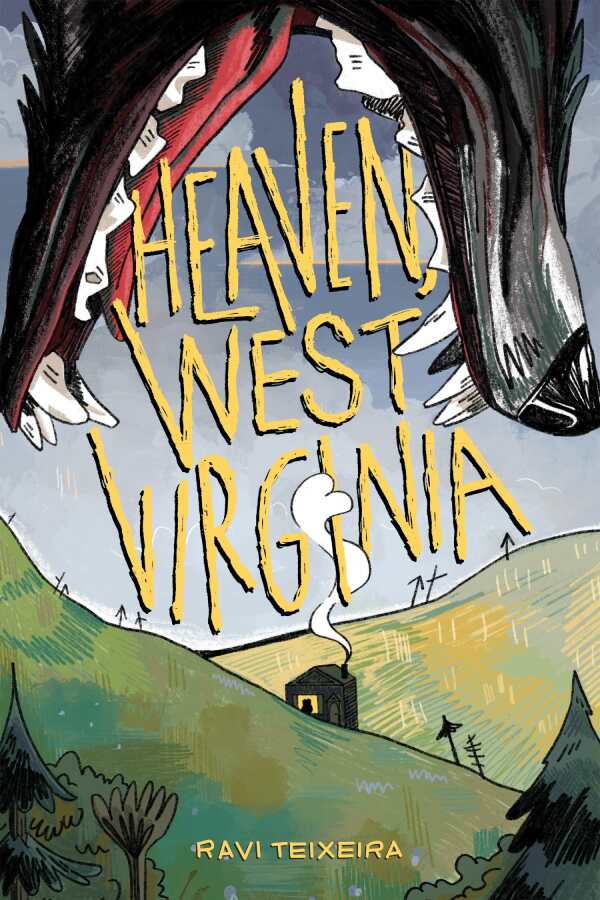Heaven, West Virginia
A man grapples with the lingering effects of his late father’s homophobia in Ravi Teixeira’s graphic novel Heaven, West Virginia.
After his father’s death, Lamont arrives in the Appalachian town of Heaven to stay with his aunt, Latoya. As Lamont receives visions of a lupine creature, his aunt puts him to work helping her make teas and other concoctions. He meets Coyote, a handsome resident, and pursues a romantic relationship, coming to terms with his sexual orientation and his father’s past as the leader of an anti-gay group. Identifying his visions as ghosts of his father, he is able to put the past to rest and move forward with Coyote.
The book incorporates local flavor, as well as elements of Aunt Latoya’s tea business, including recipes for Mint and Blueberry Iced Tea, Ginger Chamomile Tea, and a “World-Famous Love Potion.” In addition, Lamont’s foraging expeditions include entertaining, informative insights into plants and fungi. These elements, along with Lamont’s complicated past and the ghost-wolf threat, make the book engrossing from the start.
The book makes extended use of symbols and metaphors too: its art utilizes a raw, visceral, gripping style for the ghost-wolf scenes, while other images play on religious iconography in interesting ways, as with the climactic “crucifixion” of the ghost-wolf. The romance between Lamont and Coyote develops in an organic way, and a sexual encounter is depicted using both direct and metaphorical images.
Heaven, West Virginia is a quirky, emotional graphic novel in which a young man learns to accept himself and cast aside his father’s negative influence.
Reviewed by
Peter Dabbene
Disclosure: This article is not an endorsement, but a review. The publisher of this book provided free copies of the book to have their book reviewed by a professional reviewer. No fee was paid by the publisher for this review. Foreword Reviews only recommends books that we love. Foreword Magazine, Inc. is disclosing this in accordance with the Federal Trade Commission’s 16 CFR, Part 255.

